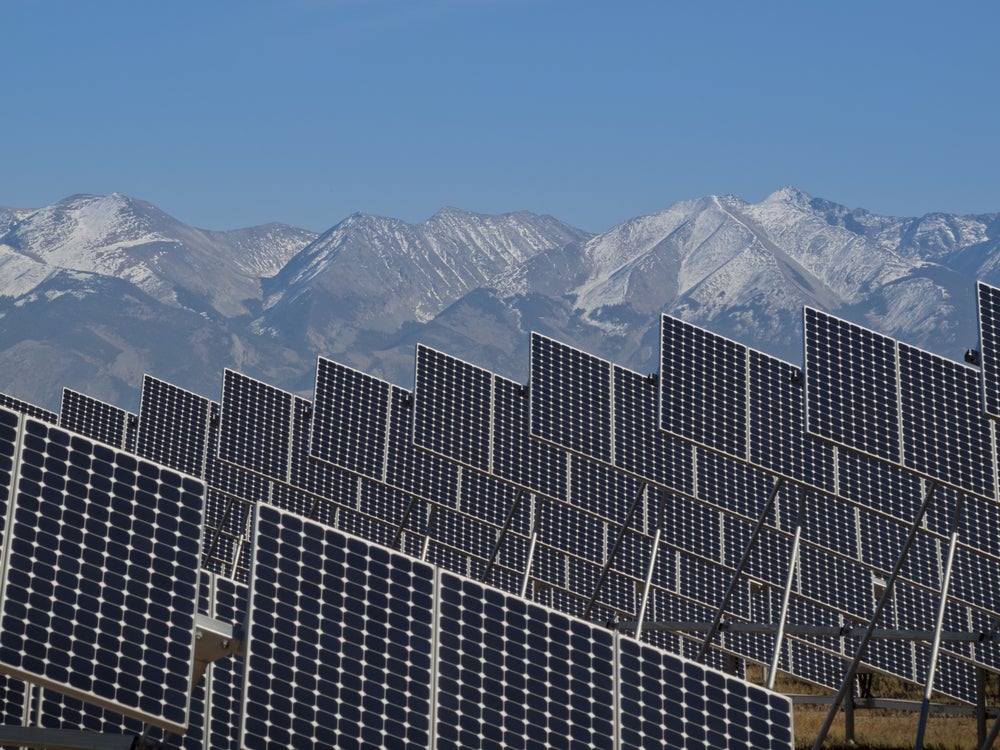States Show Support for the Clean Power Plan
Two events on Capitol Hill brought in voices from across the country in support of the EPA’s Clean Power Plan.

This page was published 10 years ago. Find the latest on Earthjustice’s work.
The impacts of climate change have already begun to show across the nation. The state of Washington is facing threats of ocean acidification, increased wildfires, decline in snowpack and more severe weather from climate change, all of which cause harm to its economy. On the other side of the country, Delaware has seen the health and environmental impacts of emissions from fossil fuel-generated power plants blowing across the country from western states. However, states also have the solutions. For example, Colorado has created thousands of wind and solar industry jobs, growing the clean energy economy and supplanting the need for fossil fuels.
As Senator Barbara Boxer (D-CA) stated in a Senate hearing Wednesday morning, “These are facts, and facts are stubborn things.”
Over the last few days, senators, staff and the public have heard a variety of state perspectives on the EPA’s proposed Clean Power Plan, which would limit carbon pollution from our nation’s single largest source—power plants.
During a briefing on Tuesday, a panel of state officials from across the country provided their opinions on the Clean Power Plan. The Minnesota Pollution Control Agency’s assistant commissioner, David Thornton, stated, “We don’t want EPA to weaken it.” Sam Ricketts, director of the Washington Office of Governor Jay Inslee, argued that the Clean Power Plan is an essential federal regulation and an implementable rule. Martha Rudolph, director of environmental programs at the Colorado Department of Public Health and the Environment, focused on the flexibility of the rule, one of its great strengths.
These positive commendations of the Clean Power Plan were reiterated during an Environment and Public Works hearing the next day. Witnesses from California and New York related many of the claims made at the briefing the day before. Mary Nichols, chairman of the California Air Resources Board, said that “the framework proposed by EPA is a workable, practical plan that will cut carbon pollution, as well as other forms of pollution.” Michael J. Myers, of the New York State Attorney General’s office, took it one step further by urging his fellow state regulators to consider that the “world’s scientists are telling us that we need to act now … our faith leaders are telling us that we have a moral imperative to act. The law, the Clean Air Act, requires us to act, and EPA’s plan for cutting greenhouse gases from existing power plants is on sound legal ground.”
Dissenting opinions were also voiced at this hearing. Thomas Easterly, commissioner of the Indiana Department of Environmental Management; Todd Parfitt, director of the Wyoming Department of Environmental Quality; and Ellen Nowak, chairperson of the Public Service commission of Wisconsin, focused on the economic impacts that the Clean Power Plan would have on their states. However, some senators laid many of these claims to rest. For example, in Senator Sheldon Whitehouse’s home state of Rhode Island, electricity rates are actually cheaper than the rates of two states testifying at the hearing due to investments in energy efficiency that have been created through their involvement in the Regional Greenhouse Gas Initiative (RGGI), a multistate approach to emissions reduction that is encouraged under the Clean Power Plan.
There are countless more examples that show that investment in clean energy and energy efficiency provide benefits that far outweigh the costs. EPA’s Clean Power Plan would help states reduce their climate impact in a practical, cost-effective manner that stymies climate change impacts that have already begun and prevents the worst from occurring. Regulators representing states from across the country have said that under the plan, states are provided with the flexibility they need to make meaningful reductions in carbon pollution. As Michael J. Myers said at the hearing Wednesday morning, “The time is now for state leadership, so take the wheel.”
Established in 1989, Earthjustice's Policy & Legislation team works with champions in Congress to craft legislation that supports and extends our legal gains.